Blog Posts Tagged Acoustics Module
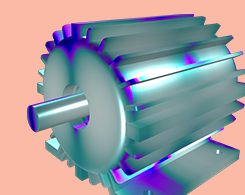
A Quiet Revolution: Analyzing Electric Motor Noise via Simulation
The sound we hear from electric-powered machines is a multiphysics phenomenon: A motor’s electromagnetic activity sends vibrations through both the machine and the surrounding air.
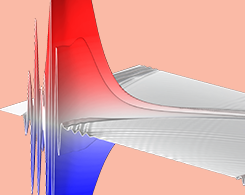
Analyzing HIFU Propagation Through a Tissue Phantom
High-intensity focused ultrasound (HIFU) is used for surgery, cancer therapy, shock wave lithotripsy, and more. Learn about how simulation can be used to analyze this noninvasive technique.
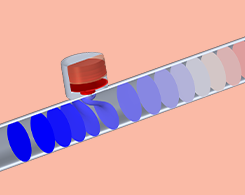
Modeling Acoustical Properties of Porous Media in COMSOL®
A guest blogger from the University of Sheffield introduces the Johnson–Champoux–Allard–Lafarge (JCAL) model for analyzing acoustical properties of porous media.
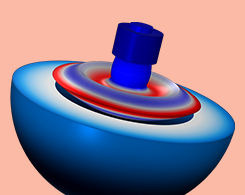
Keynote Video: Rapid Prototyping for Sonar Systems
Engineers at Northrop Grumman follow a 4-part rapid prototyping design phase: Design, manufacturing a prototype, testing and design verification, and manufacturing of the final design.
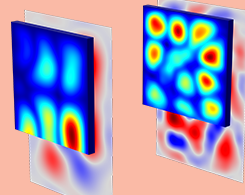
Modeling Sound Transmission Loss Through a Concrete Wall
The sound loss transmission (STL) through a building component is the logarithmic ratio between the total incident power on the structure relative to the total transmitted power.
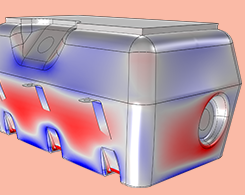
What Is the Best Way to Analyze Fuel Tank Vibration?
In a traditional approach for modeling a fuel tank, the fluid mass is dispersed through the tank’s wetted surface. A multiphysics method specifically models the acoustic pressure in the fluid.
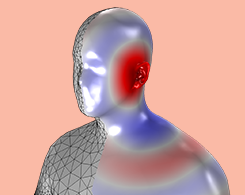
Computing the HRTF of a Scanned Geometry of a Human Head
Designing cochlear implants, hearing aids, headphones, and other audio devices requires precise measurements of the head-related transfer function (HRTF). Simulation and geometry import can help.
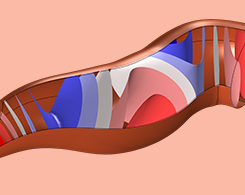
Modeling an Ear Canal’s Acoustics to Optimize In-Ear Audio Products
Ever notice an echo-like sound when wearing headphones or earbuds? Called the occlusion effect, this phenomenon can be studied using acoustics modeling to design better in-ear audio products.
